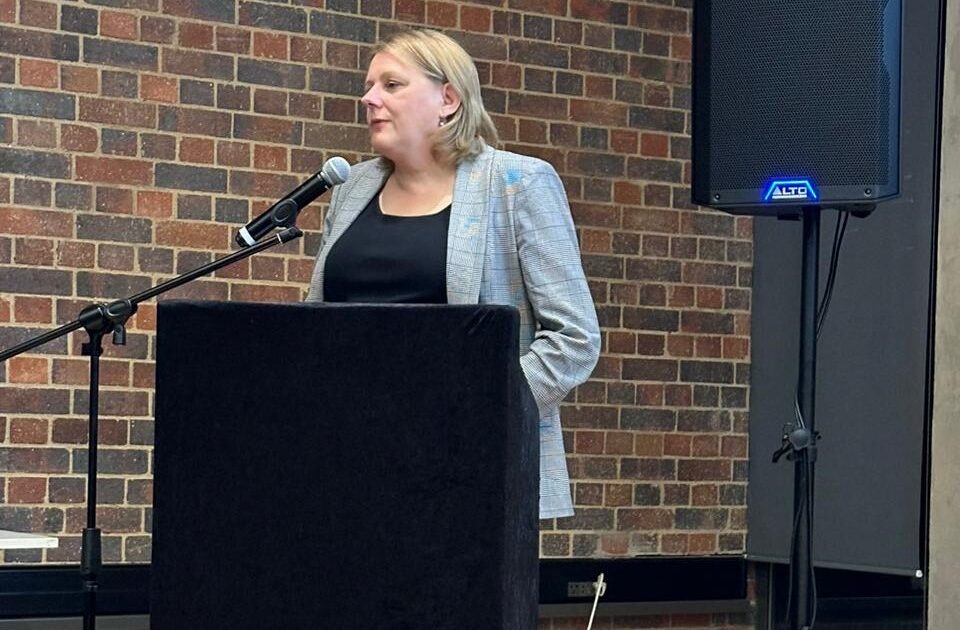Featured Item
Claiming EU ancestral citizenship possible but not straightforward

Eastern Europe once had one of the world’s largest Jewish populations, but it now ranks among the smallest.
Throughout its history, people from various communities left Europe in search of greener pastures or to escape murder or persecution. In recent years, many around the world have tried to reclaim their historic rights by gaining European citizenship.
Eva Hussain, the founder of translation and European Union (EU) citizenship services company Polaron, said half a billion people outside Europe had a claim to European ancestry but often didn’t know where to start.
Hussain was born in Poland where her family was one of the last few surviving families who remained in the country after World War II. “My grandparents were in the Warsaw Ghetto. The rest of the family were in Poland. Many who did survive immigrated to Australia and America, but our family stayed.”
In 1980, Hussain immigrated to Australia as a refugee due to the state of Poland at the time, so she’s no stranger to the plight of immigration.
Polaron has assisted those who wish to reclaim their citizenship in various European countries since 2000. “Many people know that they have European ancestry, but they often have no way to prove it,” she says.
“There are roughly 500 million people who qualify for European ancestry citizenship around the world, though most are in the Americas. For example, Poland has 38 million residents, but it also has roughly 22 million people who have Polish citizenship and live outside of Poland,” Hussain said.
Seventeen countries inside the European Economic Area offer EU citizenship, she said.
“Most countries allow dual citizenship, but don’t recognise it. For example, Austria does allow dual citizenship, but it isn’t recognised, meaning that if you are born in Austria and naturalised in another country, you lose your Austrian citizenship. Also in South Africa, if you are to acquire another country’s citizenship, you need to apply for an exemption, which is easily given. But if you are born Polish because one of your parents was Polish, then you don’t need to apply for an exemption.
“It’s probably obvious, but many people want to have EU citizenship and access to the 27 EU member states because they want to have a Plan B,” said Hussain, “Most of our clients are American, and at any given time, half of them aren’t happy with the state of the country, so they like to have the option.”
“We also need to understand what to do with citizenship,” Hussain said. “For example, previously, if you had German citizenship and you wanted to naturalise in South Africa, you would lose your German citizenship.”
Though some countries like Germany and Austria were reticent to allow dual citizenship, that’s slowly changing, with both Germany and Austria introducing a category of citizenship for people who were subject to oppression by the Nazi regime, meaning that they don’t have to be ethnically German or Austrian to be able to reclaim citizenship. “As long as the area was absorbed into the Third Reich, and you can prove it, and you can prove that discrimination or oppression, Germany and Austria will give you citizenship,” Hussain said.
However, in the case of Poland, since it was partitioned for 123 years and there was no Polish citizenship for a long time, there’s another level for citizenship. Hussain said. “The first set of laws was introduced in 1920 for people that were in Poland but also for future generations, which is why it’s termed ‘citizenship through descent’. So, they not only get citizenship for the residents of Poland at the time, but also for people outside of Poland if they met certain criteria and future generations.”
Similarly, Hussain said that if your ancestors lived in the former Czechoslovakia, you must prove where your family was from because that will determine if they are eligible for Czech or Slovakian citizenship, as it’s not possible to have both.
She said depending on the country that you seek citizenship from, it can take a long time. “Generally speaking, for Poland, it’s about 12 months, Germany 24 months, Czechia maybe about nine months. It depends on how many applications they get. Germany is quite blocked up right now because it has been getting so many applications from across the world.
“Italy is the biggest diaspora, and it’s difficult to get Italian citizenship, not because the laws are difficult or there’s not enough generational history for Italians, but because of the difficulty of getting an appointment at the consulate. In some countries, it takes up to five years to get an appointment,” said Hussain.
One of the biggest barriers Hussain has experienced in helping people get dual citizenship is the fact that “there’s no checklist that these governments give you. For example, in Poland and the Czech Republic, there are key documents like your documents and the documents of your ancestors. That’s because, when you think of your ancestors’ journeys, they didn’t each live with one document. In a way, they’re making it flexible by saying, you know, we’re not making this very prescriptive. On the other hand, they don’t tell you what they need.”
Hussain said that in terms of getting ancestral citizenship, “there’s no generational limit. As long as you can provide evidence that it’s your direct ancestor and you have documentation to prove it, you can start the process”.
